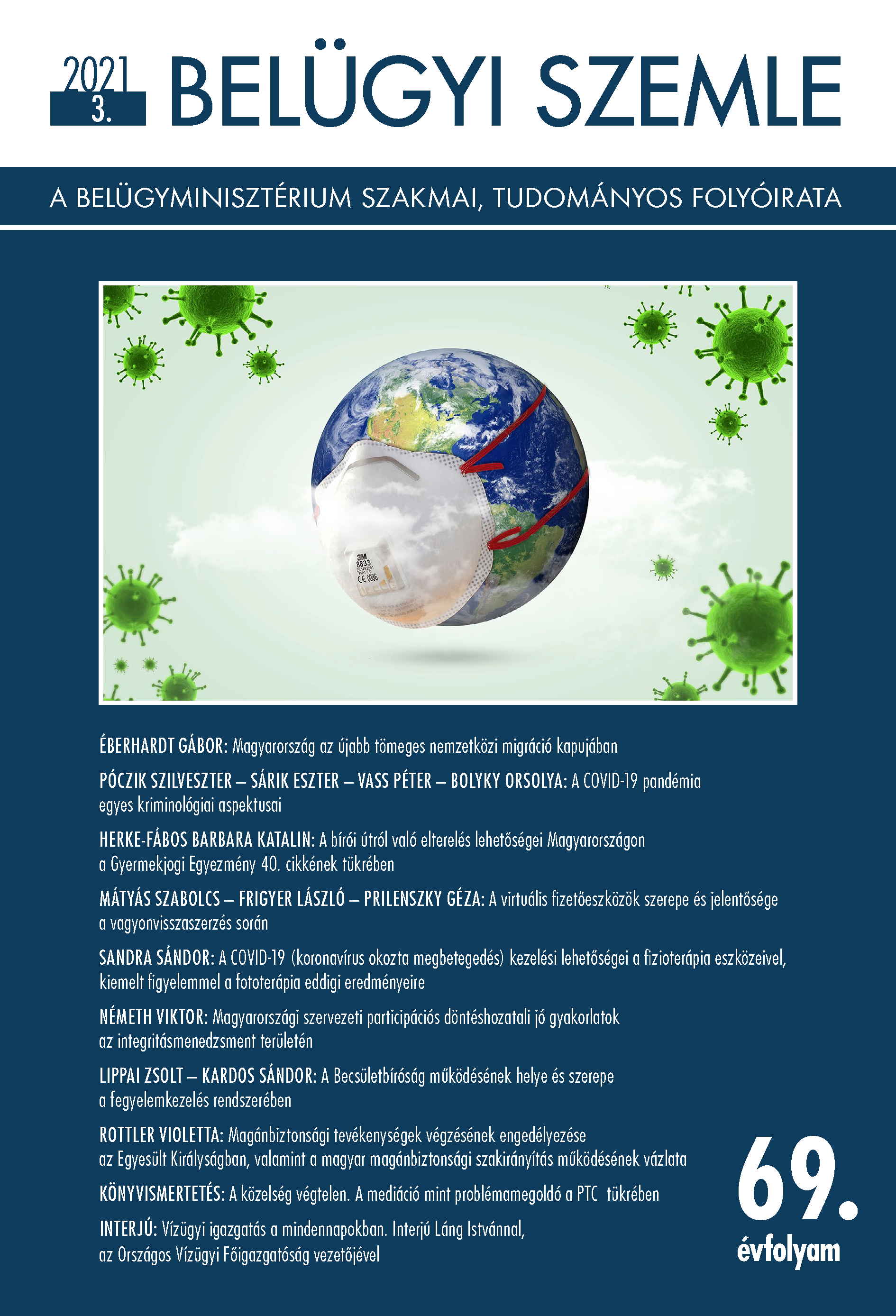Abstract
The study presents - through community (participation) mediation - the structure and development of joint decision-making processes and patterns of good practices that can be achieved and are sustainable. The use of the social network’s resources, i.e. the organisation’s own resources, is capable of developing alternatives to solutions under controlled conditions. It describes the steps and the effects and benefits of the process from the perspective of each participant. It draws a parallel to decision-making of public sector institutions and examines the possibility of introducing best practice in them. The article processes two specific cases. In the case of Esztergom, a community mediation led by external experts, and in the case of Nagymányok, a more complex mediation model project extended with training is presented. In the latter case, the acquisition of best practice at a sustainable level was also important. The two best practices in Hungary illustrate two different theoretical and practical solutions in detail, which can be well applied - with the necessary changes - in the field of integrity management.

